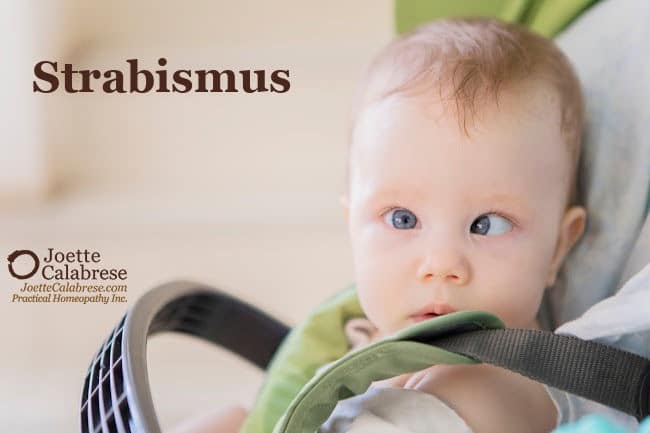“Be careful with that stick, or you’ll poke your eye out!” Have you ever said something to that effect?
Yep, guilty as charged. Right? Unfortunately, we moms tend to create common expressions out of worst-case scenarios.
How about this one? “Don’t cross your eyes, or they’ll get stuck that way!”
Okay, okay. One might experience muscle fatigue from too much eye-crossing, but I’ve never heard of anyone actually getting their eyes stuck!
However, there is a medical condition of crossed eyes called strabismus. Some call this condition by the vernacular term “cross-eyed.” But in truth, strabismus also includes many different manifestations of eye misalignment.
It’s estimated that about 5% of pre-school children exhibit some degree of strabismus. The condition can be subtle, or it can be pronounced, forcing the sufferer to squint in order to see adequately. However, in cases where the eyes do not track together correctly, the “binocular effect” of normal 3-D vision may be adversely impacted and even lost.
Strabismus can result from damage, synthetic drugs, muscle weakness, or even serve as a manifestation of other medical conditions. So, it’s important — as always — to get a diagnosis. However, there is no need to panic that surgery will be required.
There are several homeopathic medicines that we might call upon to address strabismus, either alone or with or without surgery. Of course, this blog format does not allow enough time for a complete education on all the potential medicines, so let me share two and some of my ideas surrounding them.
Today is a lesson on how to choose a homeopathic medicine when we have to differentiate between a couple of choices. So, there will be no remedy card with specifics.
The first medicine that one might consider is Argentum nitricum. Given that this medicine has sweeping effects on the eyes in general, we ought to at least consider it in the running. So, we’re more or less extrapolating from a general eye protocol medicine.
Using the homeopathic method, we strive to keep medicine schedules tidy by observing other pathologies that might influence the medicine choice. This is done by using a homeopathic repertory as well as a couple of materia medicas. Indeed, if we can uncover another clue about the sufferer’s total picture — even something that doesn't necessarily relate to the eyes, such as mental, emotional or general symptoms — it may help pinpoint the best homeopathic medicine for the specific condition of strabismus.
For instance, does the individual also suffer from anxiety or muscle spasms?
Those “seemingly” unrelated pathologies can all be clues to which Strabismus remedy would be most appropriate.
So, for instance, if I have discerned that the person suffers from anxiety, then Argentum nitricum might very well be especially warranted, as it addresses both strabismus and anxiety — wrapping two pathologies in one tidy package!
If the eyes shutter or spasm, that would be a slam dunk for my second-choice medicine for strabismus: Cuprum metallicum. Why? Because Cuprum also addresses spasms!
So, even if the sufferer commonly experiences muscle spasms in another part of the body (such as leg cramps or twitching), I would still lean towards Cuprum rather than Argentum for the simple reason that its a more inclusive choice.
If they’ve had a head injury, I would also lean towards Cuprum for the strabismus condition because Cuprum is a particularly good medicine for head injuries.
Do you see how this works? We strive for a neat, tidy package. We choose a homeopathic medicine that benefits not only the primary pathology but also addresses any secondary issues.
Ophthalmologists warn that if left untreated, strabismus can lead to another condition called amblyopia (the medical term for a lazy eye), leading to loss of sight.
So, it's important, as always to work with a medical doctor who has your best interest at heart.
But we need not panic. Homeopathy has a history of addressing this and a myriad of other conditions without side effects.
Remember to pass on the good news of homeopathy! We can’t keep this medicine to ourselves. You owe it to your family, friends and community to share the knowledge that you’ve learned!
Warmly,
P.S. How does one determine which potential homeopathic medicines are best in any given situation if there is no specific protocol to follow? Why, with a materia medica, of course. I’ve written an accessible materia medica covering over 150 of the most used homeopathic medicines.
Why do I call it “accessible?” A typical materia medica can be thousands of pages written in a homeopathic language that takes a bit of education to fully and instinctually appreciate.
Instead, my materia medica is written like this blog post — in my everyday language with my stories and examples.
But I don’t consider it simply for entry-level students. No! Even those who have studied homeopathy will appreciate my materia medica’s clinical examples, illustrations and ease of use. After all, we don’t always need thousands of pages when we can find the answer more readily in A Materia Medica: Practical Homeopathy® for Busy Families.
Call today and learn how homeopathy might just be the missing piece in your health strategy.
Joette is not a physician and the relationship between Joette and her clients is not of prescriber and patient, but as educator and client. It is fully the client's choice whether or not to take advantage of the information Joette presents. Homeopathy doesn't "treat" an illness; it addresses the entire person as a matter of wholeness that is an educational process, not a medical one. Joette believes that the advice and diagnosis of a physician is often in order.
We've provided links for your convenience but we do not receive any remuneration nor affiliation in payment from your purchase.
The Author disclaims all liability for any loss or risk, personal or otherwise incurred as a consequence of use of any material in this article. This information is not a substitute for professional medical advice, diagnosis or treatment.
